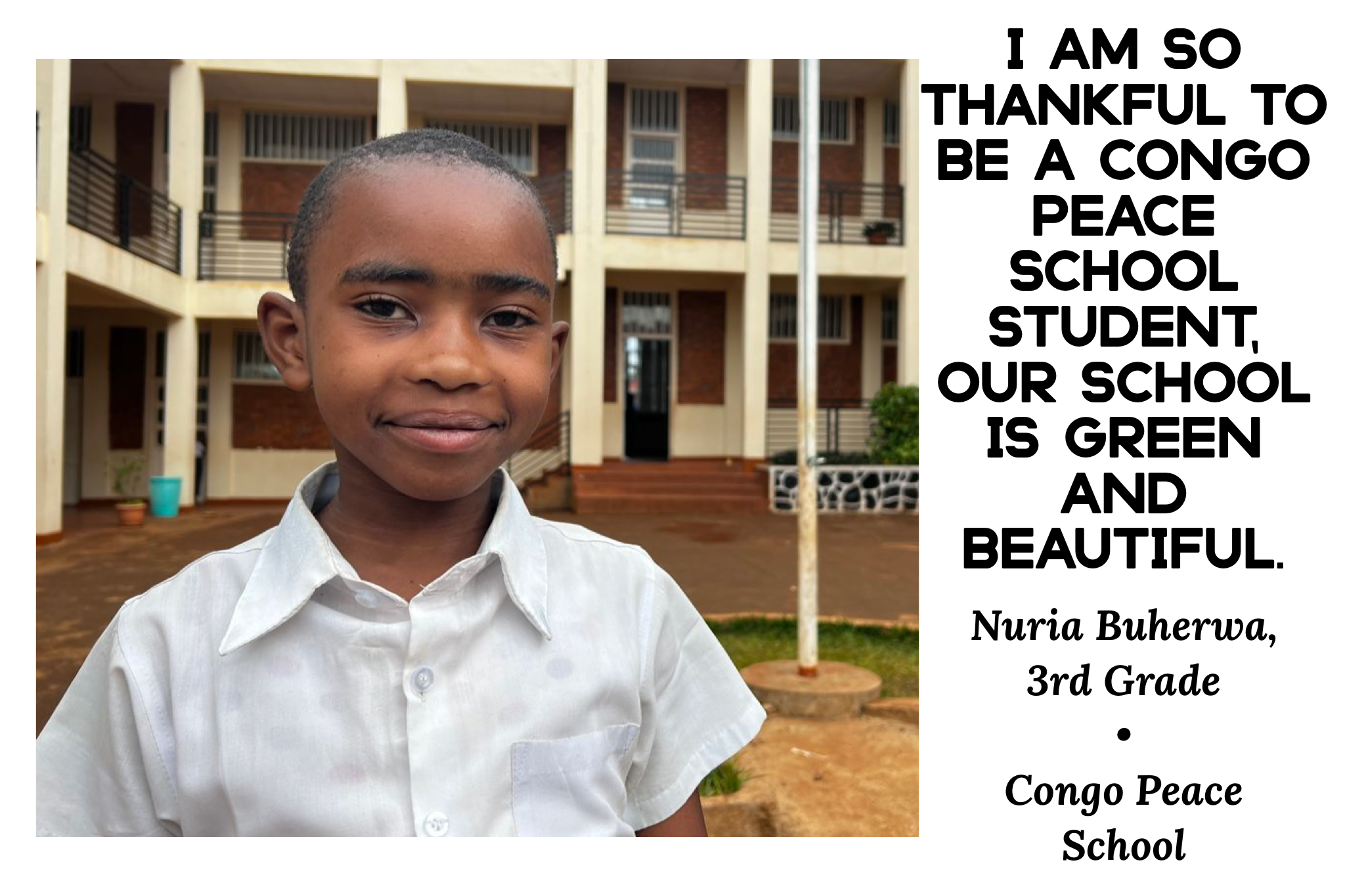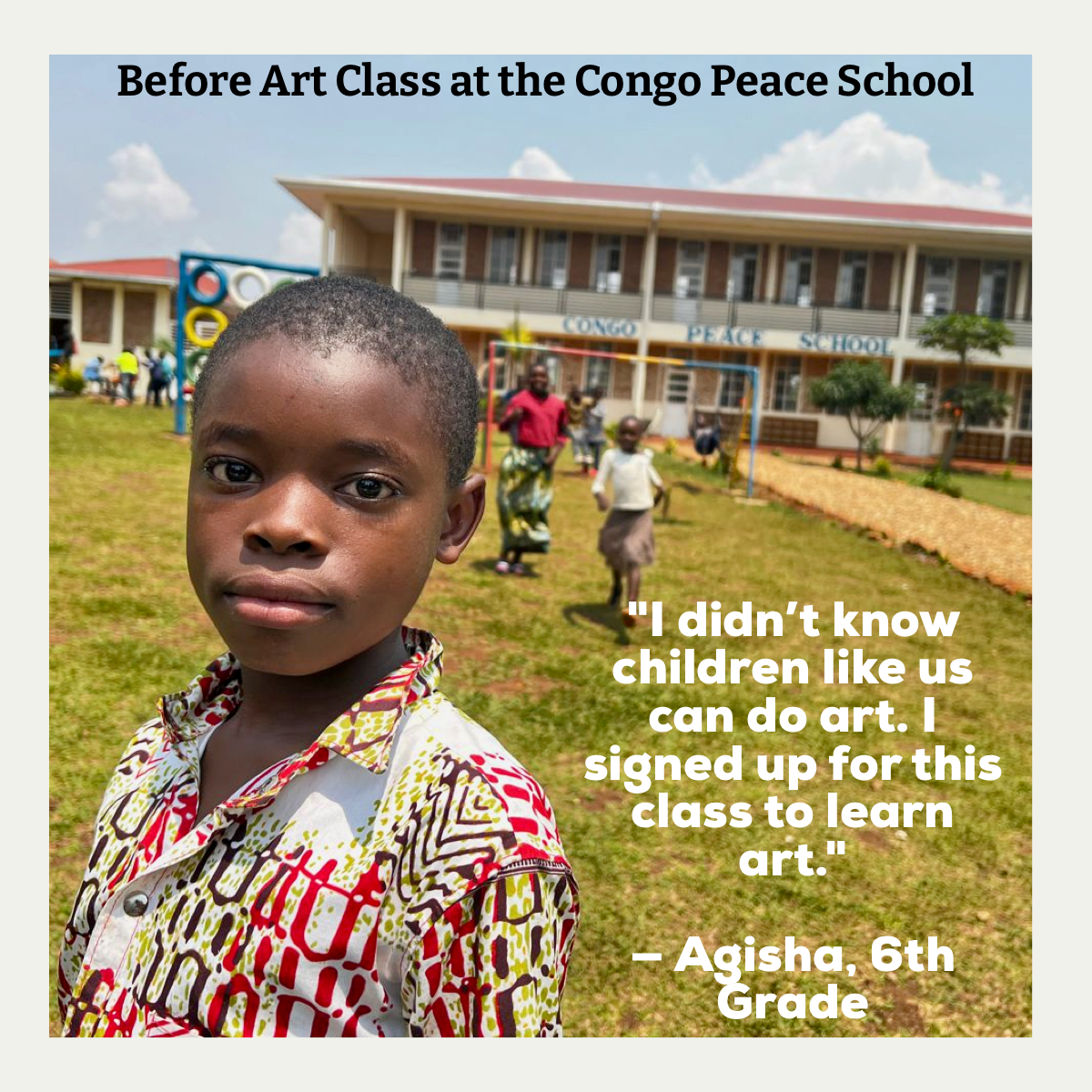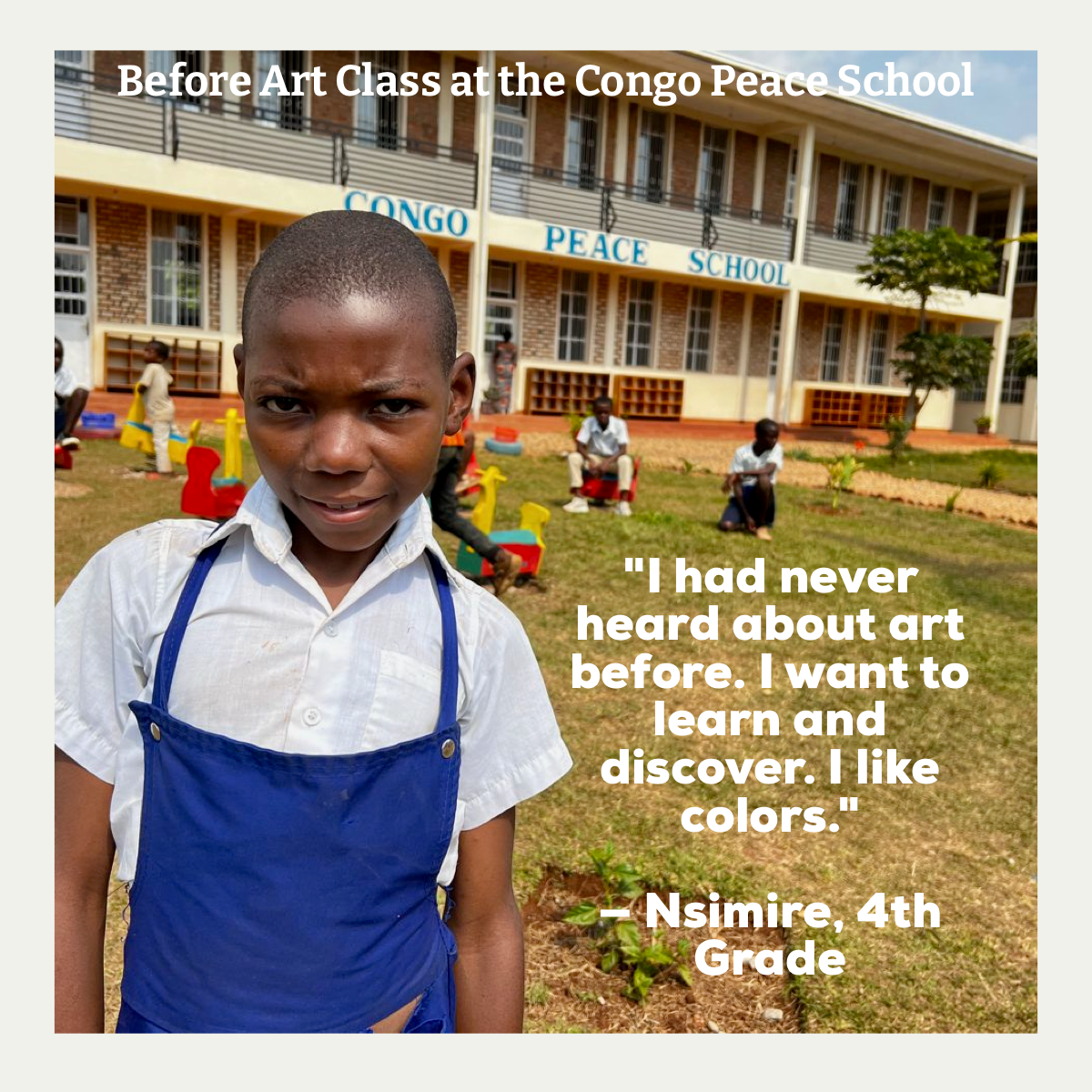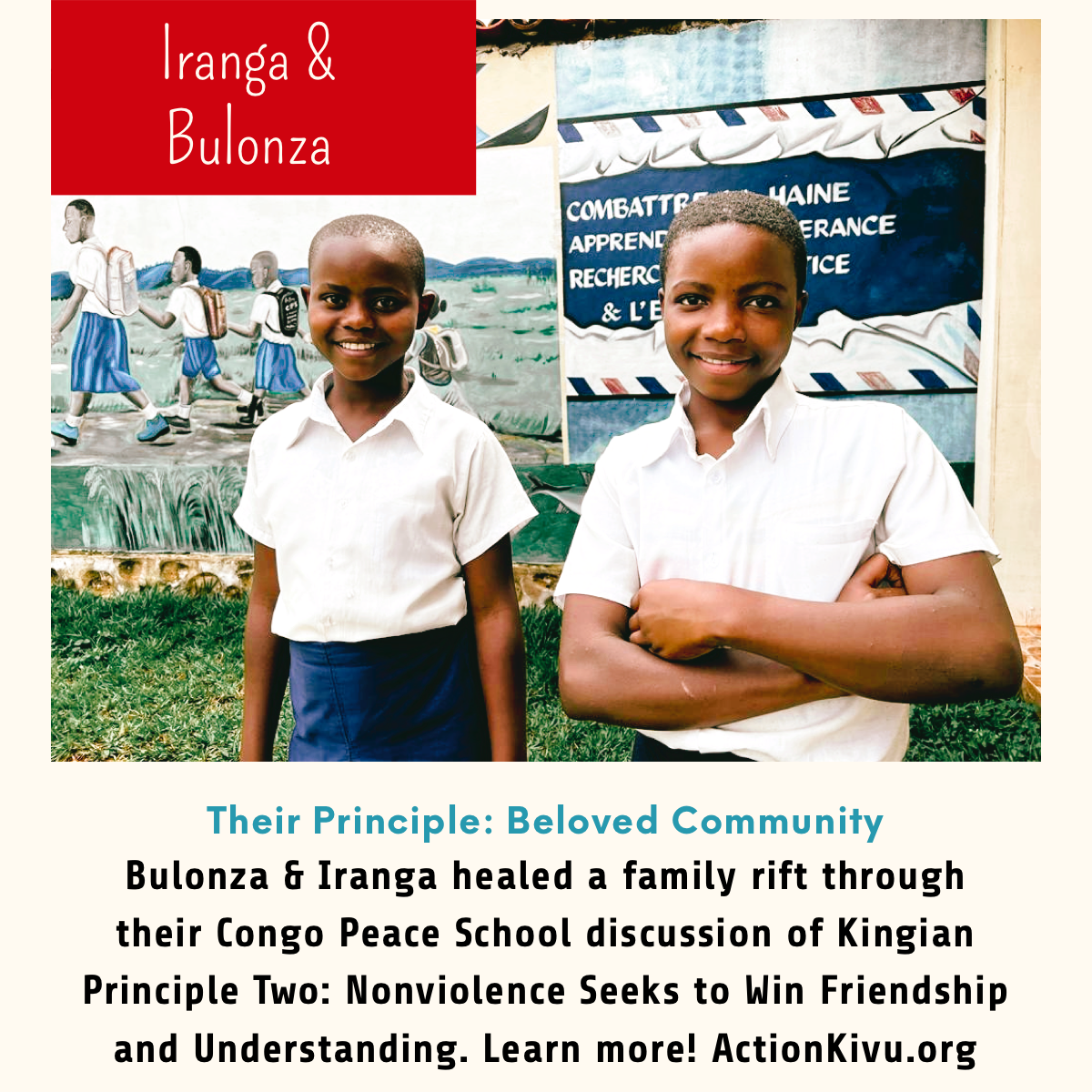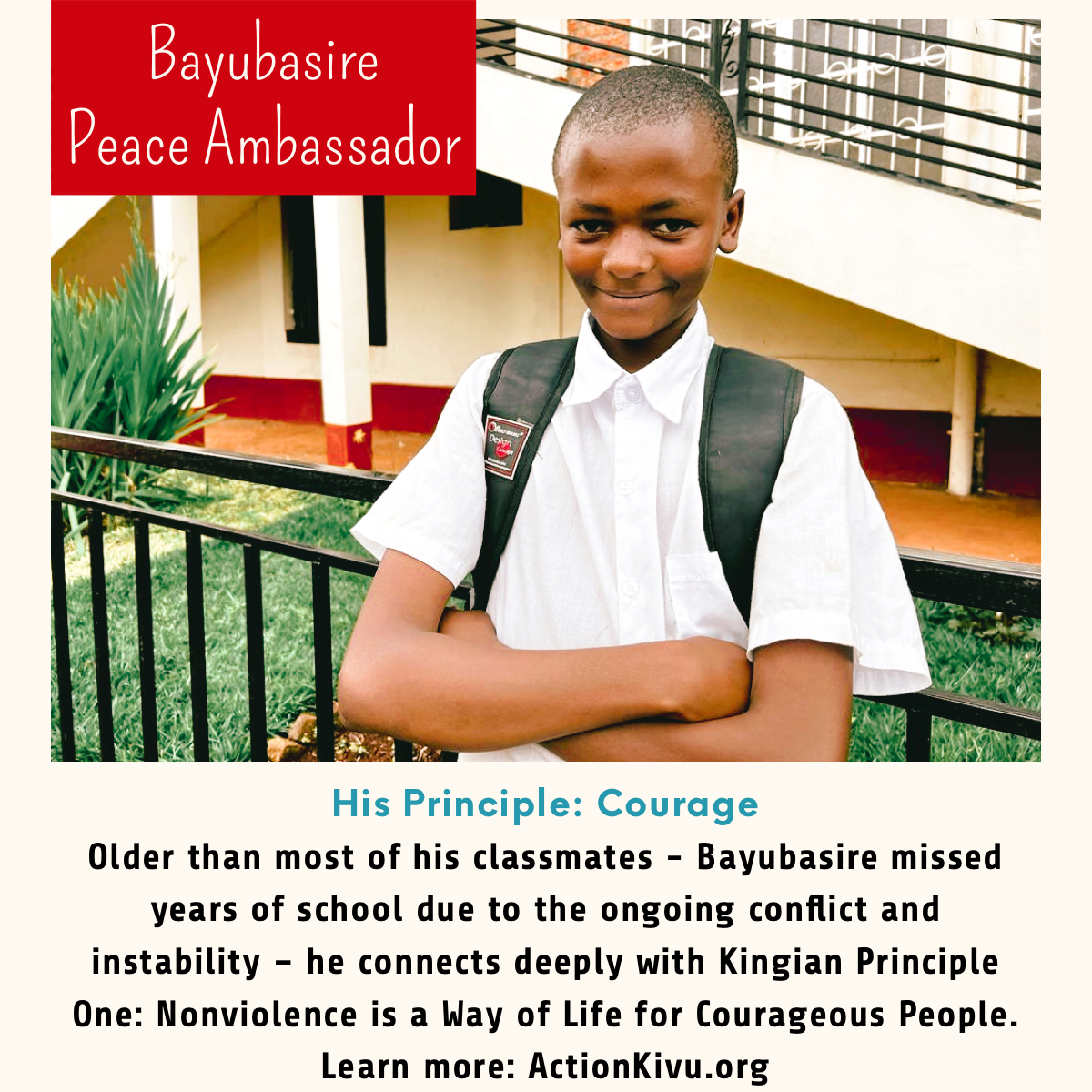Though the holiday season can sometimes feel hectic and filled with to-do lists and events, it is also a time to reflect on the year, and as we celebrate various holidays, to reflect on gratitude and gifts.
From Congo, Amani shares his gratitude for the connection you have made with him and the community at the Congo Peace School.
Amani also asked several students what comes to mind when they ponder what they’re thankful for.
(Photo text reads: I am so thankful for having a school with a teaching approach based on respect and equality. Our teachers are patient with us. I am most thankful that we have a computer lab in our school. - Ananyunve, 7th grade at the Congo Peace School.)
(Photo text reads: I am very thankful to be in a school with sanitation and hygiene practices. We have running, clean water on a regular basis! - Amina Basabanya, 7th grade at the Congo Peace School.)
(Photo text reads: I am so thankful to be in a school with a cafeteria. - Vainqueur Bahati, 2nd grade at the Congo Peace School.)
(Photo text reads: I am so thankful to be a Congo Peace School student, our school is green and beautiful. - Nuria Buherwa, 3rd grade at the Congo Peace School.)
(Photo text reads: Both Kanyenyeri and Nuria are so thankful to have each other as friends and classmates. - Kanyenyeri and Nuria, 3rd grade at the Congo Peace School.)
As I’m writing this in Los Angeles, my holiday playlist is on low volume in the background. John Lennon & Yoko Ono’s “Happy Xmas (War is Over)” is currently playing.
Maddeningly, war is not over. Around the world and specifically right now in Congo, where outbreaks of violence are chasing people from their homes, leaving them with little in terms of food or the sense of peace and safety. In Eastern Congo, violence between militia groups and military forces has spiked once again.
The Congo Peace School remains in a quiet region, but the threat of violence surrounds them. The vision of the Congo Peace School, to raise up a new generation of peace ambassadors who have the sense of agency to stand for what is just has never been more critical.
I asked Amani why he thinks it is that we use the English word “outbreak” for both war and violence and infectious diseases. He shared the following, and why he is still hopeful.
As we move through this holiday season, please consider a year end gift to Action Kivu to invest in this critical peace-building work.
War is over if you want it. – John Lennon
Violence is … a man-made disaster. It can be stopped. – Amani Matabaro
In deep gratitude for your partnership, connection, and investment in peace,
Rebecca





